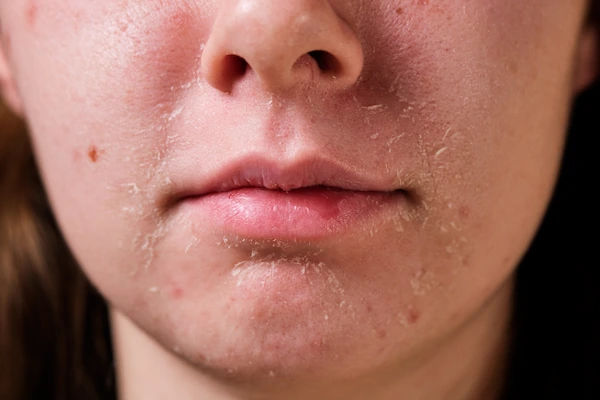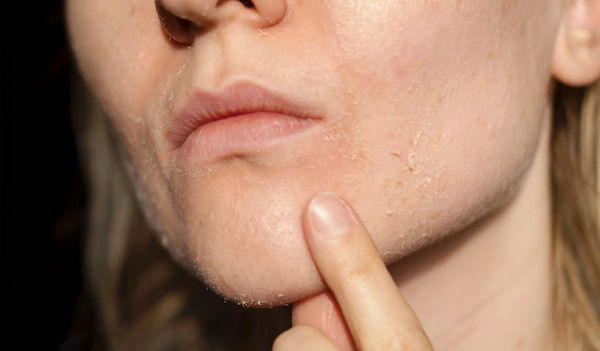How To Reduce Humidity In Room?
Discover effective methods to reduce humidity in your room. Learn tips on ventilation, dehumidifiers, and natural remedies to create a more comfortable living space.

Written by
Last updated on 13th Jan, 2026
Introduction
Humidity is the amount of moisture in the air, and while some humidity is necessary for comfort, too much can make your room feel sticky, uncomfortable, and even unhealthy. High humidity can lead to mould growth, dust mites, and respiratory problems. If you're struggling with excessive moisture in your home, here are some simple and effective ways to reduce humidity and create a healthier living space.
Why Is High Humidity a Problem?
High humidity can cause several issues, including:
Mould and mildew growth: These fungi thrive in damp conditions and can cause allergies, asthma, and respiratory infections.
Dust mites: These tiny pests love humid environments and can trigger allergies.
Musty odours: Excess moisture can make your room smell unpleasant.
Damage to furniture and walls: Wooden furniture, wallpaper, and electronics can get damaged due to prolonged exposure to moisture.
Discomfort: High humidity makes the air feel heavier, leading to difficulty in breathing and excessive sweating.
How to Reduce Humidity in Your Room?
Below are the ways to reduce humidity in a room:
1. Use a Dehumidifier
A dehumidifier is the most effective way to control humidity. It pulls moisture from the air and collects it in a tank. Place it in the most humid areas of your home, such as the bedroom or bathroom.
2. Improve Ventilation
Open windows: Allow fresh air to circulate, especially after cooking or showering.
Use exhaust fans: Turn on bathroom and kitchen fans to remove excess moisture.
Install vents: If certain areas (like basements) are always damp, consider adding vents for better airflow.
3. Use Air Conditioners
Air conditioners not only cool the air but also reduce humidity by removing moisture. Running an AC for a few hours can help maintain a comfortable humidity level.
4. Absorb Moisture with Desiccants
Silica gel packs: Place them in closets or drawers to absorb moisture.
Charcoal briquettes: These natural dehumidifiers can help reduce dampness in small spaces.
Baking soda: Keep an open box in humid areas to absorb moisture and odours.
5. Dry Clothes Outside
Avoid drying clothes indoors, as this increases humidity. If you must dry them inside, use a well-ventilated area or a dehumidifier nearby.
6. Fix Leaks and Seal Gaps
Check for leaking pipes, roofs, or windows.
Seal gaps around doors and windows to prevent outside moisture from entering.
7. Use Houseplants That Absorb Moisture
Some plants, like peace lilies, spider plants, and Boston ferns, naturally absorb humidity from the air.
8. Avoid Boiling Water Unnecessarily
Cooking with lids on pots and taking shorter showers can help reduce steam buildup.
9. Use Moisture-Resistant Paint
If your walls are prone to dampness, consider using anti-mould paint in high-humidity areas like bathrooms.
10. Monitor Humidity Levels
Use a hygrometer (a humidity meter) to keep track of indoor humidity. Ideally, indoor humidity should be between 30% and 50%.
Health Risks of High Humidity
Living in a highly humid environment can worsen health conditions such as:
Asthma and allergies (due to mold and dust mites)
Skin infections (fungal growth thrives in damp conditions)
Respiratory infections (mold spores can irritate lungs)
If you or your family members experience frequent allergies, coughing, or breathing difficulties, it may be due to high humidity.
When to Seek Professional Help?
If humidity remains high despite trying these methods, you may need:
A professional HVAC inspection (to check ventilation issues).
A plumber (to fix hidden leaks).
A mould inspection (if you suspect mould growth).
Conclusion
Reducing humidity in a room can be easily achieved with a few practical steps, such as improving ventilation, using dehumidifiers, and incorporating natural remedies like indoor plants. Regular maintenance and creating airflow can help prevent excess moisture and ensure a comfortable environment. If humidity issues persist, it’s important to address potential underlying causes like leaks or poor insulation. By implementing these solutions, you can enjoy a healthier, more comfortable living space.
Consult Top General Physician
Consult Top General Physician

Dr Syed Mateen Pasha
General Physician
2 Years • MBBS
Bengaluru
PRESTIGE SHANTHINIKETAN - SOCIETY CLINIC, Bengaluru

Dr. Anand Ravi
General Physician
2 Years • MBBS
Bengaluru
PRESTIGE SHANTHINIKETAN - SOCIETY CLINIC, Bengaluru

Dr. Vivek D
General Physician
4 Years • MBBS
Bengaluru
PRESTIGE SHANTHINIKETAN - SOCIETY CLINIC, Bengaluru

Dr. Syed Ismail Ali
General Practitioner
7 Years • MBBS
Hyderabad
Apollo 24|7 Clinic, Hyderabad

Dr. Harshendra Jaiswal
General Physician/ Internal Medicine Specialist
12 Years • MBBS , MD (General medicine)
Kolkata
108 DHANA DHANVANTARI Clinic, Kolkata
(25+ Patients)

